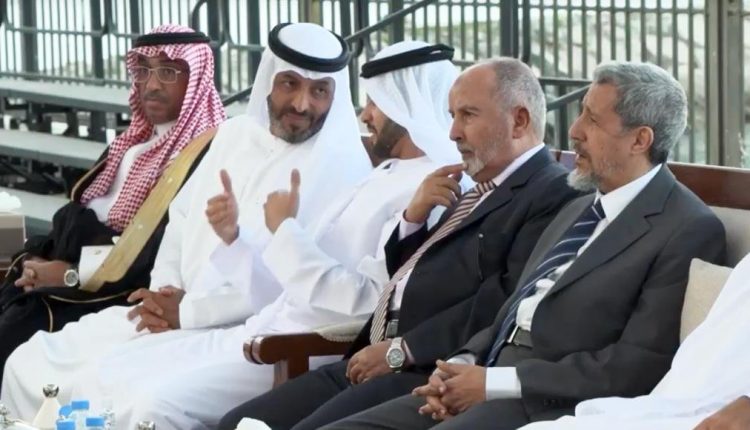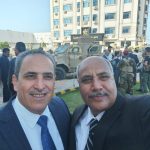SANAA, Dec. 05 (YPA) – The pro-coalition political arena has recently witnessed controversial developments regarding the return of the Islah Party to the fold of the leadership of the Emirati-backed General People’s Congress Party’s wing, after 13 years of conflict waged by “Islah” against the leadership of Tariq Afash, the nephew of the former President Ali Abdullah Saleh.
What has recently become apparent among the leaders of the Islah Party, the “Brotherhood Organization in Yemen” branch, is no longer just political flirting, but has gone beyond that, from the point of view of observers, to absolute surrender after the party received painful military and political blows and slaps in the southern governorates, starting with “Aden, then Abyan and Socotra, Shabwa, Taiz, Marib”, and pulling the rug out from under the Islah Party’s feet with excessive force in favor of the Emirati factions.
The Islah Party, especially in the southern regions, is considered one of the fiercest opponents of the Emirati-funded armed factions, as it received a severe blow that crushed nearly 300 of its militants in an Emirati airstrike at the Al-Alam military checkpoint east of Aden to prevent them from entering the city after the UAE-backed Southern Transitional Council (STC) factions took control of Aden in August 2019, in a horrific massacre, and the subsequent control of Socotra in June 2020.
The appearance of the Secretary of the Islah Party, Abdul Razzaq Al-Hijri, in the city of Mocha, which is under the control of the factions of Tariq Afash, west of Taiz province, in a celebration glorifying “Ali Abdullah Saleh” is a new step in declaring repentance in appearance, raising many questions among observers, about the secret of the sudden return that some see as a terrible setback for Islah in various aspects.
There is information about the possibility of strong Emirati pressure on the Islah Party to return to the bosom of the “Afash” leaders, after the overthrow of its authority and the recent end of its armed presence in Shabwa, in addition to the reduction of his influence in Marib through the factions supervised by Sagheer bin Aziz, Chief Of Army Staff of the coalition-backed government, as well as the areas of Al-Hujarah and the western Taiz districts through Afash forces.
Despite this rapprochement, the Islah Party has continued to carry out many military attacks against the STC factions in Mudiyah and Al-Saeed in the Abyan and Shabwa districts since the UAE factions headed to control the Islah camps in Abyan following fierce confrontations that resulted in the expulsion of the party’s forces from the city of Ataq, the center of Shabwa province, in August 2022.
Political observers believe that Islah has been playing a role to preserve its political interests by declaring its loyalty to the UAE in order to preserve what remains of its influence in Taiz and Marib, after its political interests in all the southern and eastern provinces of Yemen have been ended, with the exception of the Hadramout Wadi districts, where they still maintain its military strength due to Saudi interventions against the backdrop of the Emirati attempts since its factions announced the “Arrows of the East” operation to head towards Hadramout Wadi after taking control of the Islah camps in Shabwa.
Islah’s submission to the UAE appeared clearly and evidently through its excessive glorification of it through its leaders and no one else, amidst a terrible silence of the Islah leaders about the massacres and brutal crimes that the Israeli enemy has been committing for more than a year against the sons of the Palestinian people, in light of accusations facing the Islah Party of trading in the Palestinian cause, during which the party was able, according to human rights activists, to seize billions in aid and donations provided by the Yemeni people to the Palestinian people over the past decades.
Consequently, the return of Islah to the embrace of the leaders of “Afash” is a development confirming the marginality of its political and military role after the UAE seized control of the decision through the leaders loyal to it in the Saudi-affiliated Presidential Leadership Council, while maintaining its evasion and circumventing the neck of everyone around them and improving the appropriate opportunity to pounce.
On the other hand, some believe that the rapprochement between the Islah Party and the pro-Emirati leadership, including the meeting of Aidarous al-Zubaidi, head of the STC, with the Islah Party leadership in Riyadh on November 22, came as a result of intensive American efforts by the US ambassador to the coalition-funded Aden government in Yemen, with the aim of reorganizing the ranks of the forces loyal to the coalition, within the framework of seeking to resume battles against the Sanaa-based armed forces on the backdrop of the Sanaa’s positions alongside the Palestinian people and its refusal to abandon the Palestinians despite the temptations and threats that reached Sanaa, with the aim of pushing it to abandon the Palestinian people, and stop its military operations, whether those carried out by banning navigation on Israeli occupation-linked ships, or the direct missile operations against military and vital targets inside the “Israeli” entity.



